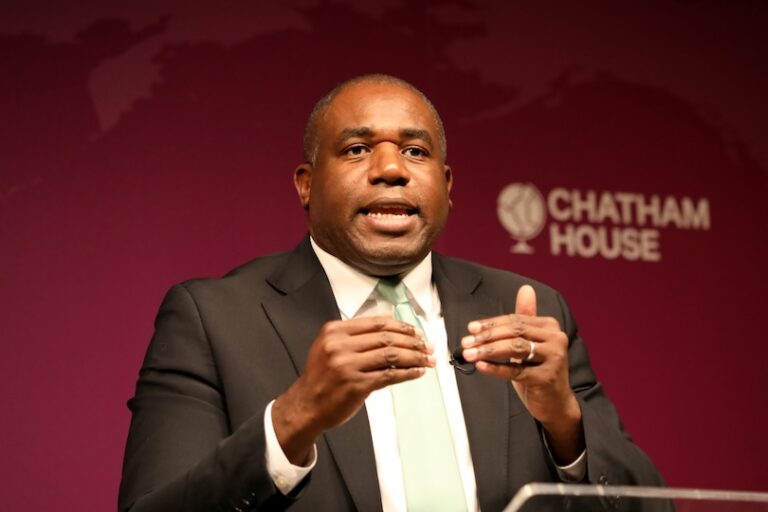In an period outlined by advanced world challenges, David Lammy’s articulation of “progressive realism” as a overseas coverage technique marks a putting departure from Labour’s conventional stance on the world stage. Not like the historic strategy, the place the emphasis was totally on sensible implications of insurance policies, Lammy’s “The Case for Progressive Realism” elevates the dialogue by infusing it with a wealthy tapestry of worldwide relations (IR) idea and overseas coverage evaluation. This novel give attention to idea is seldom witnessed in British overseas coverage discourse, making it a ground-breaking perspective. Via an exploration of ideas like multipolarity, comfortable energy, and the intricacies of globalization and hegemony, Lammy’s narrative weaves a compelling argument for a refined strategy to navigating the worldwide order.
What units this proposed technique aside is its basis within the theoretical understanding that Britain, beneath the subsequent Labour authorities, is poised to have interaction with world politics in a radically new method. This is not merely a shift in route however a reimagining of how a nation interacts with the remainder of the world. Lammy critiques the considerably sanctified view of Robin Cook dinner’s period, positioning progressive realism as a extra nuanced and real looking strategy to world points, pivoting from a very optimistic perception in globalization’s advantages to a practical recognition of worldwide relations as a site led by financial competitiveness.
By endorsing “progressive realism,” Lammy charts a course that seeks to discover a delicate stability between non-intervention and direct motion, a tightrope stroll between the perils of each extremities witnessed in latest a long time. This strategy acknowledges the rising threats and alternatives offered by world energy shifts, such because the ascendancy of China and Russian assertiveness. It suggests a revitalization of Western alliances, emphasizing NATO and fostering a better relationship with the EU, whereas advocating for a overseas coverage that locations fairness at its core, particularly when it comes to improvement and combating local weather change.
The nuanced critique extends to the Conservative authorities’s overseas coverage, which Lammy views as a jumble of “nostalgia and denial,” primarily exemplified by the Brexit ordeal. Progressive realism, with its mix of theoretical perception and a dedication to equity, is posited because the antidote to latest missteps, promising to revive Britain’s stature on the world stage. The article attracts parallels with historic proponents of realism who pursued progressive ends, like Machiavelli and EH Carr, suggesting that whereas their willingness to have interaction with the stark realities of energy was clear, Lammy’s progressive realism seeks a extra cautious path.
But, regardless of its ambitions, progressive realism is scrutinized for probably overlooking the sensible mechanisms by way of which it goals to attain its lofty objectives. The essay questions whether or not reliance on establishments like NATO and the EU, and not using a clear operational technique towards adversaries like China and Russia, could be its Achilles’ heel. Lammy’s optimistic view on collaboration and competitors may want a extra rigorous framework akin to Kennan’s containment coverage through the Chilly Battle to be genuinely efficient.
Lammy’s reflections on Britain’s function in dealing with the twin problem of Chinese language energy and Russian aggression open up a dialogue on the real looking evaluation of the “West” and Britain’s place inside it. In doing so, it acknowledges the nuances and complexities of post-Brexit overseas coverage, hinting on the inevitable challenges and difficult selections that lie forward in balancing numerous world pursuits and aims.
Whereas progressive realism goals to harmonize the pragmatic with the idealistic, its success hinges on a extra profound acknowledgment and strategic deployment of Britain’s relative strengths within the present worldwide milieu. In its present kind, progressive realism presents a promising but partially formulated blueprint for Britain’s overseas coverage, one which necessitates a deeper engagement with the exhausting truths of realism to navigate an more and more multipolar world and deal with the multifaceted crises of the twenty first century.
